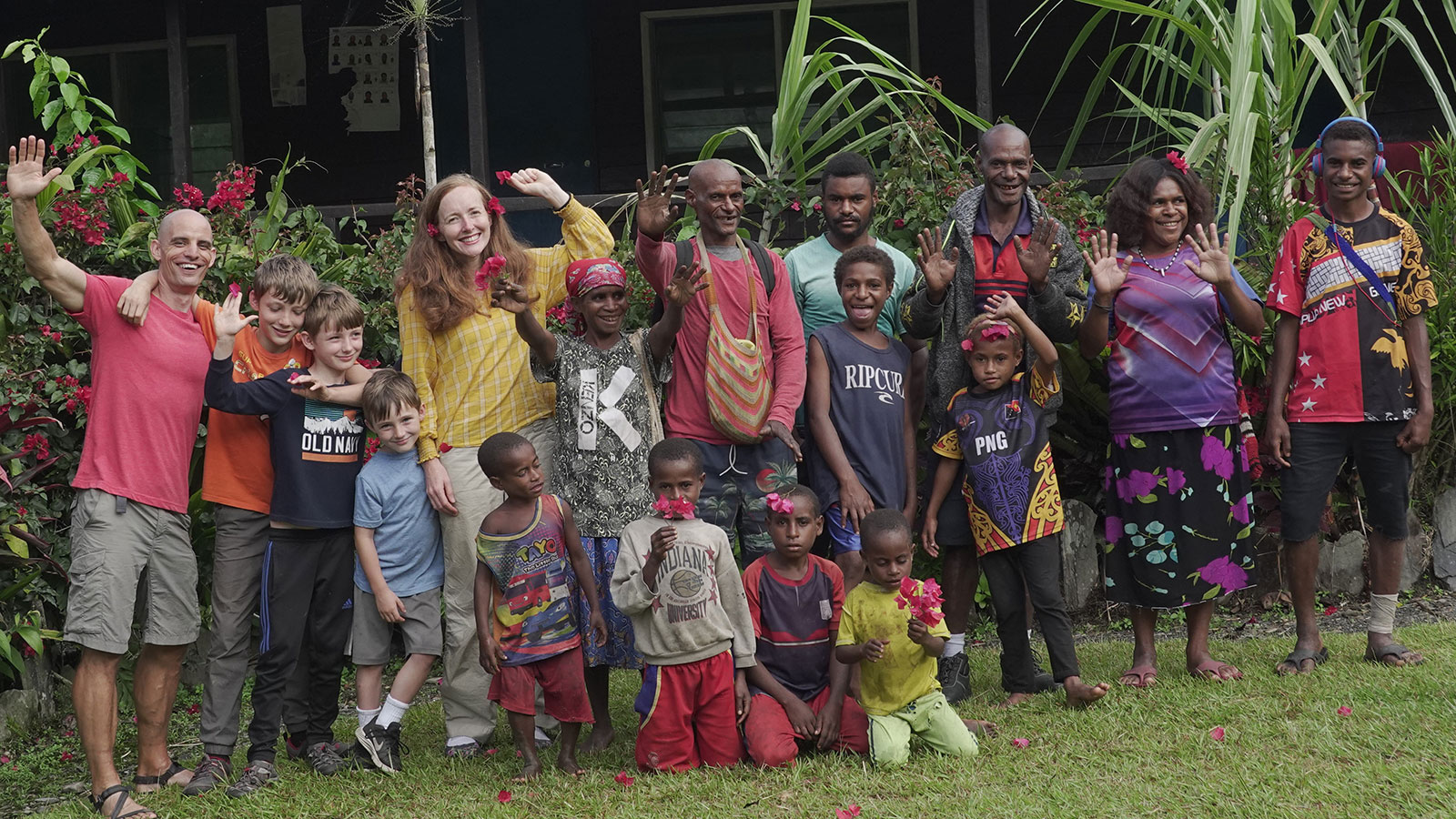Michael Wesch: Professor of Anthropology, University Distinguished Teaching Scholar
By Mike Wesch
As a small-town kid growing up 90 miles from Manhattan, I longed to see the world, so when I stepped into my first anthropology class at K-State I knew it was the right major for me. Just four months later I was already living my dream, traveling to Costa Rica and Bolivia to learn Spanish. That was just the beginning. Now I am an anthropology professor at the place that inspired it all and I get to travel the world looking for great untold stories. I get to sit around the cook-fire in New Guinea villages and share stories with life-long friends, explore ancient (and modern) temples throughout southeast Asia, and learn new ways of seeing the world while contemplating who we are and who we might become.
 With my friends and family in New Guinea in early 2020. Over the years we have shared over 1,000 meals together and thousands of stories.
With my friends and family in New Guinea in early 2020. Over the years we have shared over 1,000 meals together and thousands of stories.
My projects involve working with local people to share their lives and stories in ways that can create a visceral sense of “being there” and deepen cross-cultural understanding. So when I am not traveling I am eagerly learning languages so I can truly understand and interact with the people I meet. I also spend a lot of time experimenting with cameras, fpv drones, virtual reality, and any other tools that I think might help me share the lives and stories of the people I meet.
I am especially interested in the big questions of life, so I am naturally drawn to the study of different religious beliefs and practices around the world. I love finding new ways of seeing the world, making meaning, and finding peace. Right now I am doing research on Cao Dai, a fascinating religion in Vietnam that combines elements from Christianity, Buddhism, Taoism, Confucianism, Spiritism, and local folk traditions.
I teach classes in Cultural Anthropology, the World’s Religions, and Digital Storytelling by creating weekly “challenges” and activities that ask students to explore and put big ideas into action, rather than just memorizing them for exams. In my cultural anthropology class students explore the human condition by talking to strangers, breaking and building habits, giving up core technologies, and having deep conversations with people radically different from them. In my world religion class students try meditation, raja yoga, tai chi, and prayer while exploring how these practices impact our societies and our brains. And in my digital storytelling classes, I help students create their own visual masterpieces, some of which go on to be featured in international film festivals.